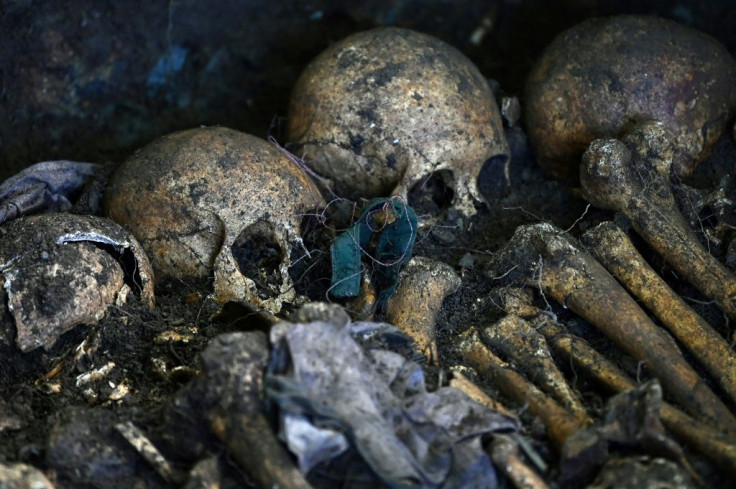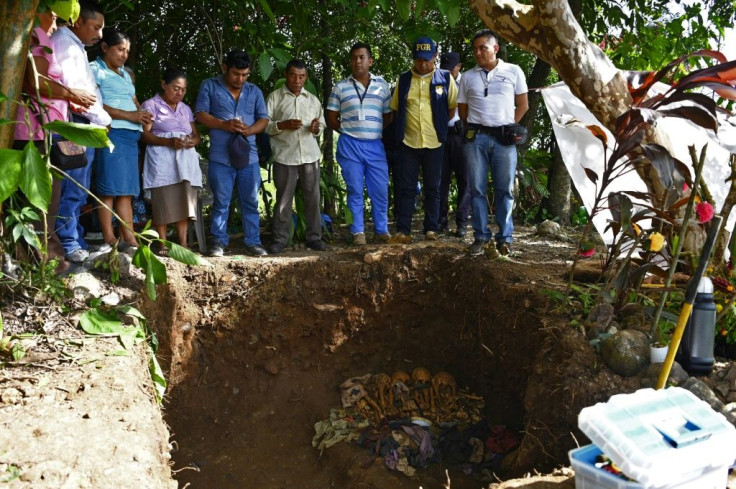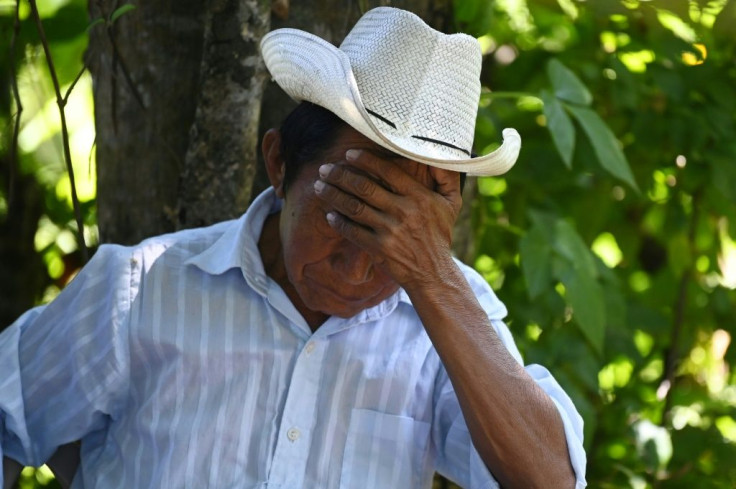Forensic Experts Exhume Remains Of Victims Of El Salvador's Civil War

An international team of forensic experts on Wednesday exhumed the remains of 11 people killed by soldiers during the infamous El Mozote massacre in El Salvador's 1980-1992 civil war.
The new find will be part of a case against soldiers of the Atlacatl Battalion who carried out the December 1981 massacre that killed -- according to official figures -- 986 people, including 558 children, on suspicion of aiding leftist guerillas.
The bones are being dug up in a remote cemetery in the rural village of Yancolo, some 170 kilometers (105 miles) northeast of the capital San Salvador.
The national prosecutor's office confirmed on Twitter that "crimes that took place during the armed conflict" were being investigated.

The forensic team believes the find includes the remains of five children, one of them a three day-old infant, killed when soldiers tossed a hand grenade inside a nearby cave where people were hiding.
"Twenty people were inside the cave, 12 died instantly in the explosion and eight managed to survive," said an attorney for Wilfredo Medrano, one of the survivors.

The blast survivors returned to the cave in February 1994 to retrieve the bones and bury them in a mass grave in Yancolo, a representative of the prosecutor's office on site told AFP.
Since the bones are mixed up in the mass grave, experts need take them to a laboratory to determine "the cause and manner of death," said Silvana Turner, an Argentine forensic anthropologist working with the team.
In 2012, the Inter-American Court of Human Rights blamed the Salvadoran government for the Mozote massacre and ordered reparations.
Four years later, El Salvador's Supreme Court ruled that a blanket amnesty for people accused of war crimes during the conflict was unconstitutional.
Two of the battalion's senior officers died during the war, but charges were brought against 18 soldiers accused of being involved in the massacre. Since then, two have died, but another was added to the case.
More than 75,000 people were killed or went missing during El Salvador's civil war, which ended in January 1992.
cmm/ch/wd
© Copyright AFP 2024. All rights reserved.





















